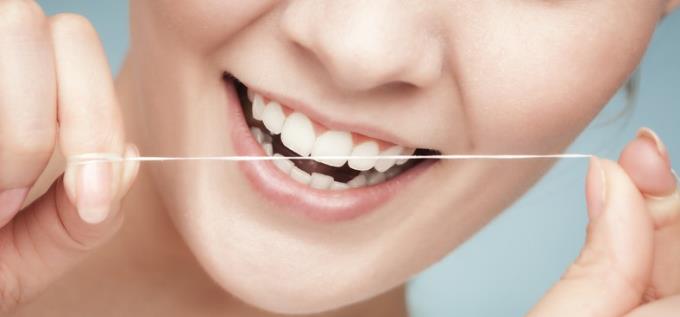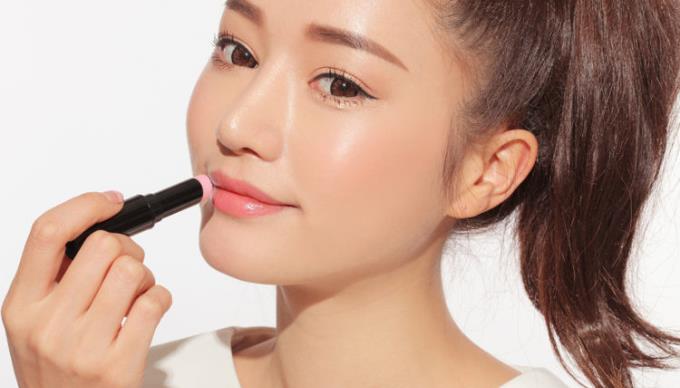You already know that there are certain habits you should not practice while pregnant, like drinking alcohol or smoking. In addition, there are many other notes in the handbook that you may not know about. Let's explore with aFamilyToday Health!
Teeth whitening agent

Peroxide, the active ingredient in whitening agents, is considered safe for adults. Even if you only swallow small amounts of this substance during the bleaching process, there are many substances that have not been determined to affect the baby during pregnancy. Therefore, it is best to avoid the use of bleaching agents during pregnancy.
Instead, you should use whitening toothpaste, keep brushing, floss and visit your dentist regularly to protect your teeth.
Mother's Handbook: Be careful when using hair spray and nail polish
Phthalates, found in hair sprays and nail polishes, have been shown to pose a potential risk of birth defects. According to FDA testing conclusions (US Food and Drug Administration), the available data have not shown a link between the use of phthalates in cosmetics and risks to human health. .
Phthalates have not been shown to be associated with birth defects in humans. However, animal studies have shown that these substances interfere with sexual development in men, so caution is essential.
For safety's sake, use phthalate-free nail polish or nail polish in a well-ventilated area to limit exposure. Once the paint is dry, the harm to the fetus is significantly reduced, as the chemicals cannot be absorbed through the nails.
Instead of using inhalable hairspray, use a mousse or gel form to style your hair.
Skin dyeing and sunbathing
The effects of skin staining on pregnant women have not been studied in depth. According to Judith Hellman, clinical professor of dermatology at Mount Sinai College of Medicine, New York: “Self-staining is a lot less harmful than sunbathing or using a tanning bed. However, after 9 months, your skin will no longer retain the original color.
Some sunscreens contain Oxybenzone . A recent study linked this substance absorption with low birth weight in newborn girls. But this study did not prove that the reason was due to the sunscreen.
Sunscreen is extremely important because hormones during pregnancy can make the skin more sensitive than usual. If you are concerned about using sunscreen, consider the following remedies:
Use chemical-free sunscreen, wear a hat, and wear protective clothing when out in the sun;
Limit sun exposure, especially around 10 noon to 2 pm, when the sun is strongest;
Use sunscreens containing zinc oxide and titanium dioxide. These ingredients help filter out UV rays by covering the skin's surface and preventing the absorption of these rays through the skin.
Handbook pregnant mother: take care of acne properly

Your skin acne is often worse during pregnancy due to hormonal changes. Talk to your doctor if they are bothersome for you. Acne medications, such as Accutane (isotretinoin), Retin-A ( tretinoin ), and tetracycline are dangerous for pregnant women and can cause birth defects in the baby.
Your doctor may prescribe a topical medication that contains azelaic acid, erythromycin, or clindamycin . Glycolic acid peel is also safe for pregnant women. Some doctors may recommend using a very small amount of benzoyl peroxide cream or a salicylic cleanser.
To be safe, wash your face with warm water and a gentle cleanser twice a day. You absolutely should not rub your face.
Hair dye and lipstick

Researchers have not yet proven the harmful effects of hair dyes on pregnant women, so some doctors recommend not to dye your hair during this period.
Other doctors may have more open-minded thoughts. They believe that only a small amount of chemical hair dye is absorbed through the woman's skin, so it is not enough to harm the fetus. Highlight dyes that are not used directly on the scalp are harmless. However, to be safe, you should avoid dyeing your hair in the first trimester because this is the most sensitive time of the fetus.
In general, you should avoid the use of hair dyes and chemicals that contain ammonia as this gas can cause nausea. To reduce irritation from dye, dye your hair in a well-ventilated room, wear gloves, and then wash off immediately after using.
The lipstick is not harmful, as the lipstick cannot be absorbed. The lead content in lipstick (which leads to lead poisoning) is not well defined but the risk can be quite low. However, it is safest to use lead-free lipsticks.
Handbook pregnant mother: should not use anti-wrinkle cream
Some pregnant women use anti-wrinkle cream as much as do use stretch cream. But before using it, let's take a look at its ingredients. Many anti-wrinkle creams contain retinol, which can lead to birth defects in babies.
There aren't any conclusive studies yet, but retinol may be associated with the risk of miscarriage or developmental delay in young children. If you want to use an anti-wrinkle cream during pregnancy, you should consult your doctor before use.
Botox pump
Botox injections help reduce wrinkles. But experts advise against using these methods during pregnancy. Although full and in-depth studies on the effects of the cosmetic Botox pump in pregnant women have not been conducted, the beauty botox pump is not recommended for pregnant women.
Before deciding to have any surgery or medication, you should consult your doctor or other specialist to ensure the health of you and your baby.














